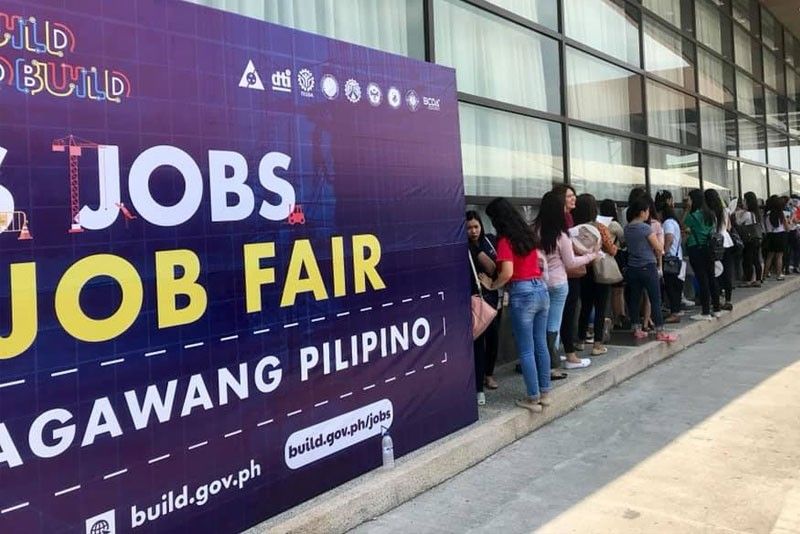No government fees for new jobseekers

MANILA, Philippines — First-time jobseekers will no longer have to pay for government-issued documents required by employers.
President Duterte has signed into law a measure waiving the fees in the issuance of government documents required in the employment application of first-time jobseekers.
Republic Act No. 11261 or the “First Time Jobseekers Assistance Act” was signed into law last April 10.
The law recognizes the need to promote full employment and quality of gainful work and opportunities, to expand the accessibility to government services and to provide incentives to promote a first-time jobseeker’s access to employment.
Under the law, all government agencies and instrumentalities – including state-run firms, local governments and government hospitals – should not collect fees or charges from a first-time job seeker. The benefit can only be availed of once.
Documents covered by the law are police clearance certificate, National Bureau of Investigation clearance, barangay clearance, medical certificate from a public hospital, birth certificate, marriage certificate, transcript of academic records issued by state colleges and universities, tax identification number, unified multi-purpose ID and other documentary requirements issued by the government that may be required by employers.
Applicants must present a barangay certification stating he or she is a first-time job seeker.
Government agencies are required to maintain and update a roster of all individuals who have been issued documents for free.
The Department of Information and Communications Technology (DICT) is mandated to compile a database of all beneficiaries of the law and make them accessible to all relevant agencies.
The waiver of fees and charges will not cover applications for professional licensure examinations, passport authentication and red ribbon of documents from the Department of Foreign Affairs, career service examination and driver’s license.
Beneficiaries of the Jobstart Program and other laws that provide similar exemptions for documents or transactions cannot avail themselves of the First-Time Jobseekers Assistance Act.
An interagency committee that will monitor how government offices are complying with the law will be created.
It may recommend to authorities the filing of an administrative complaint against any person who refuses to comply with the law.
The labor secretary, in consultation with the DICT and other concerned agencies, will issue the implementing rules and regulations within 60 days from the effectivity of the law.
Hailed
Senators hailed the enactment of the First-Time Jobseekers Act, saying this will not only help those seeking employment but also their families.
The law was authored by Sens. Nancy Binay, Leila de Lima, Loren Legarda, Grace Poe, Sonny Angara, Joseph Victor Ejercito, Antonio Trillanes IV and Joel Villanueva.
“We express our sincerest gratitude to the President for signing into law this landmark legislation that would exempt an estimated 1.3 million first-time jobseekers annually from paying fees on government-issued documents that are inordinately expensive for people without regular jobs,” Angara said.
Ejercito said the measure would help around 600,000 fresh graduates annually.
Villanueva said the new law was a timely gift for new graduates.
To prove they are first-time jobseekers, applicants are required to submit a duly sworn affidavit stating that he or she is either a new graduate, an early school leaver, a student taking a leave of absence, a part-time worker or is not engaged in education or employment.
Villanueva cited a study by the Asian Development Bank (ADB), which showed that regulations and restrictions on employment arrangements were one of the strong factors influencing school-to-work transition.
Poe, who pioneered the legislation in 2013, said an ADB survey showed that 25 percent and 80 percent of college and high school graduates, respectively, are unable to find work a year after they left school. – Paolo Romero
- Latest
- Trending





























